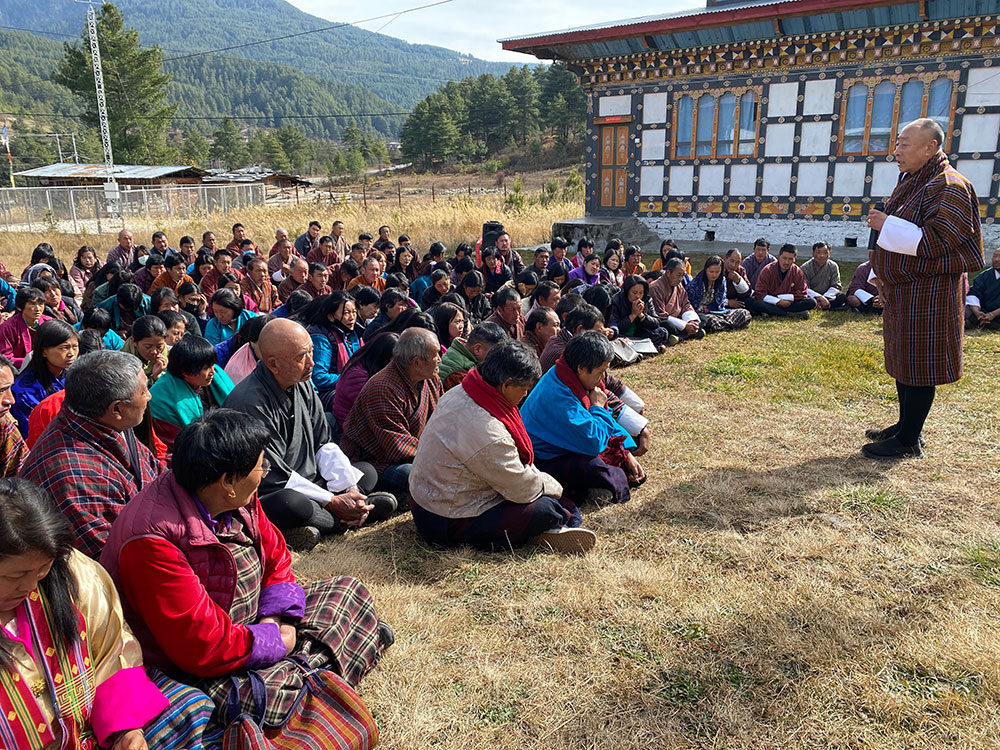Dechen Dolkar
The Bhutan Tendrel Party (BTP) is committing to bolster household income, increasing it sevenfold on an annual average in a bid to achieve national prosperity. The party aims to increase it from the current Nu 406,134 to Nu 3 million by the end of 2029.
BTP President Pema Chewang, who is on campaign in the eastern dzongkhags, met with voters of Mongar yesterday.
He emphasises the party’s commitment to addressing poverty, recognising every household as the foundation of a robust national economy. The approach involves promoting economically competitive and environmentally friendly rural and urban enterprises.
The party’s key strategies include reduction of the poverty level by half by the end of 2029, support for informal businesses, and the promotion of micro-enterprises.
Pema Chewang said, “Poverty will be addressed by augmenting household income and simultaneously enhancing the livelihoods of people.”
Over the past five years, poverty has seen a rise of 51 percent, climbing from 8.21 percent in 2017 to 12.4 percent in 2022, impacting 80,614 citizens.
The BTP president said that the party’s focus is on increasing household income through the cultivation and marketing of high-end agricultural products, such as Miyazaki Mango and black watermelon.
The party plans to distribute mango saplings, costing Nu 600 each, to the public if it forms the government. Additionally, the promotion of stone lapidary and micro-enterprises like potato chips and packaging is part of their agenda.
Rinchen Wangmo, a 42-year-old from Tang gewog in Bumthang, expressed interest in growing high-yield products if provided by the government, stating that income from potatoes is currently just enough to cover power tiller charges and fertilizers.
Pema Chewang also announced plans to train farmers in cultivating these products and provide seedlings from the second year if the party is elected.
To ensure market access, BTP pledges to facilitate the trading of agricultural commodities by implementing enabling policies and periodically adjusting trade regulations.
BTP recognises the challenges posed by rising inflation and the cost of living, especially for low and middle-income families in urban areas.


